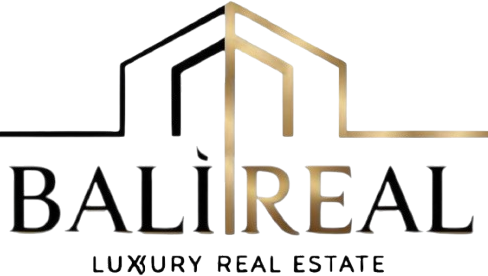What is Freehold and Leasehold in Bali?
Investing in land in Bali, Indonesia, can be a lucrative opportunity, but it’s important to understand the differences between leasehold and freehold land ownership, as well as the legal and practical implications of each. Here’s a breakdown:
1. Freehold Land Ownership
- Definition: Freehold ownership means you have full, permanent ownership of the land. The title is in your name, and you have the right to use, sell, or transfer the land as you wish.
- Eligibility: Foreigners cannot own freehold land in Indonesia under Indonesian law. Only Indonesian citizens or locally registered companies can hold freehold titles.
- Advantages:
- Full control over the land.
- No time restrictions on ownership.
- Higher resale value compared to leasehold.
- Disadvantages:
- Foreigners cannot directly own freehold land, so they must use alternative structures (e.g., a nominee arrangement or a PT PMA company, which is a foreign-owned company registered in Indonesia).
- Higher upfront costs and legal complexities.
2. Leasehold Land Ownership
- Definition: Leasehold means you lease the land from the owner (freeholder) for a specific period, typically 25-30 years, with options to extend. You do not own the land but have the right to use it during the lease term.
- Eligibility: Foreigners can legally enter into leasehold agreements, making this a popular option for expats and foreign investors.
- Advantages:
- Easier for foreigners to acquire.
- Lower upfront costs compared to freehold.
- Flexibility to negotiate lease terms.
- Disadvantages:
- Limited ownership duration (e.g., 25-30 years, though extensions are often possible).
- The land must be returned to the owner at the end of the lease.
- Lower resale value compared to freehold.
Key Differences Between Leasehold and Freehold
| Aspect | Freehold | Leasehold |
|---|---|---|
| Ownership | Permanent ownership. | Temporary use for a fixed period. |
| Eligibility | Only for Indonesian citizens/entities. | Available to foreigners. |
| Cost | Higher upfront cost. | Lower upfront cost. |
| Control | Full control over the land. | Limited control (subject to lease terms). |
| Resale Value | Higher resale value. | Lower resale value. |
| Legal Complexity | More complex for foreigners. | Simpler for foreigners. |
How to Handle Leasehold and Freehold Investments in Bali
For Freehold Investments (for Foreigners):
- Use a Nominee Agreement:
- A local Indonesian citizen holds the land on your behalf under a legally binding agreement.
- Risks: Nominee agreements can be risky if not properly structured, as the nominee legally owns the land.
- Set Up a PT PMA Company:
- A PT PMA (Penanaman Modal Asing) is a foreign-owned company registered in Indonesia.
- This allows the company to own freehold land, but the company must operate in specific sectors approved for foreign investment.
- Costs and regulations are higher, but it’s a more secure option than a nominee.
- Marriage to an Indonesian Citizen:
- If married to an Indonesian, the spouse can own the land, but prenuptial agreements are recommended to protect your interests.
For Leasehold Investments:
- Negotiate Lease Terms:
- Ensure the lease agreement is clear, including the duration, renewal options, and rights to develop the land.
- Typical lease terms are 25-30 years, with options to extend.
- Register the Lease:
- Register the lease agreement with the local land office (BPN) to ensure legal protection.
- Work with a Lawyer:
- Engage a reputable local lawyer to review the lease agreement and ensure compliance with Indonesian law.
- Consider a Right-to-Use (Hak Pakai) Title:
- Foreigners can obtain a Hak Pakai title, which grants the right to use the land for a specific purpose (e.g., building a villa) for up to 80 years (renewable).
Important Considerations
- Due Diligence: Always verify the land’s status (e.g., no disputes, clear title) with the National Land Agency (BPN).
- Zoning Laws: Ensure the land is zoned for your intended use (e.g., residential, commercial).
- Taxes: Be aware of property taxes, transfer taxes, and other fees associated with land transactions.
- Cultural Sensitivity: Respect local customs and involve local communities in your plans to avoid conflicts.
Conclusion
- Freehold: Best for long-term investment, but only available to Indonesians or through complex structures like PT PMA.
- Leasehold: Easier for foreigners, but limited by lease duration and lower resale value.

